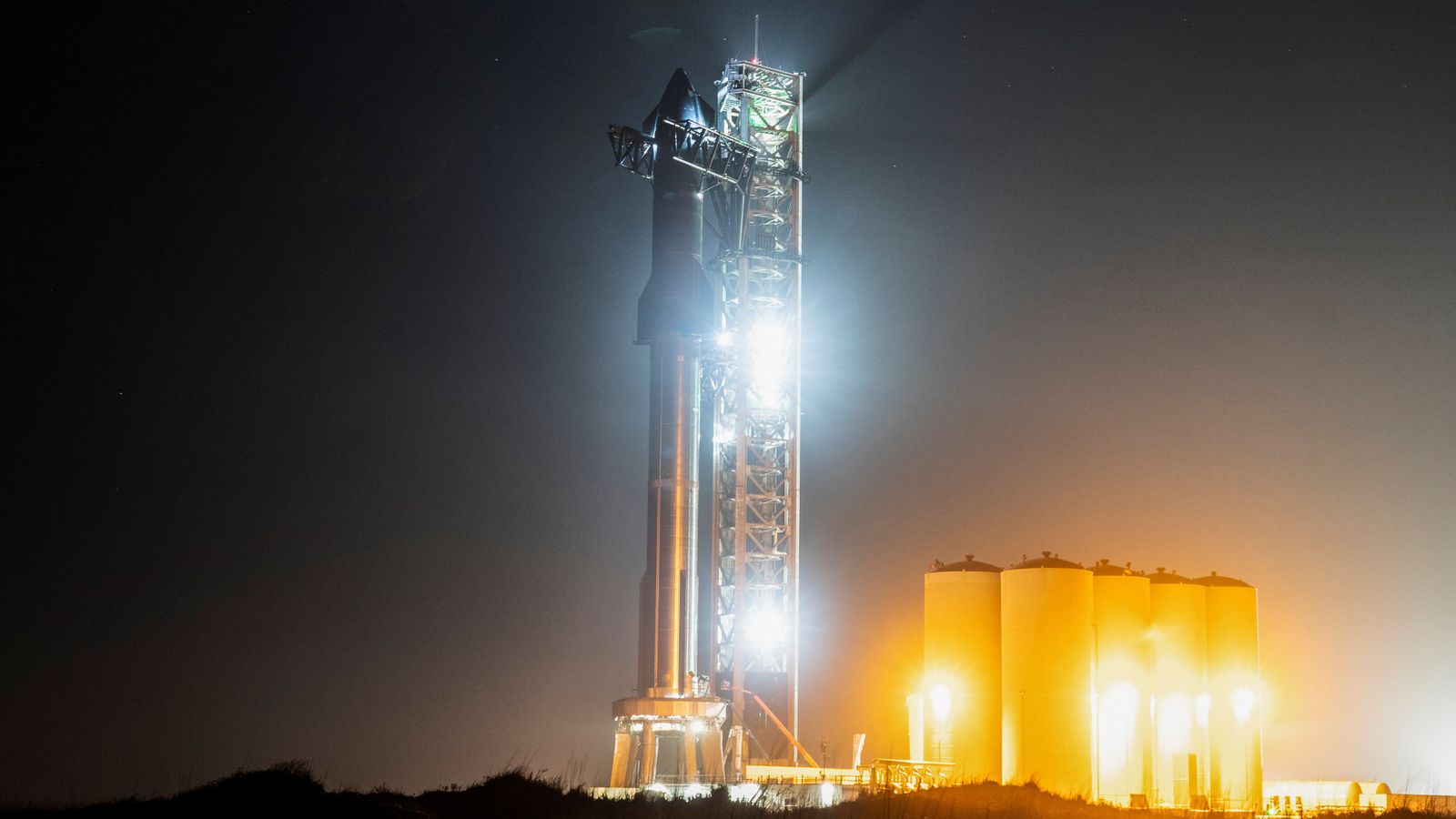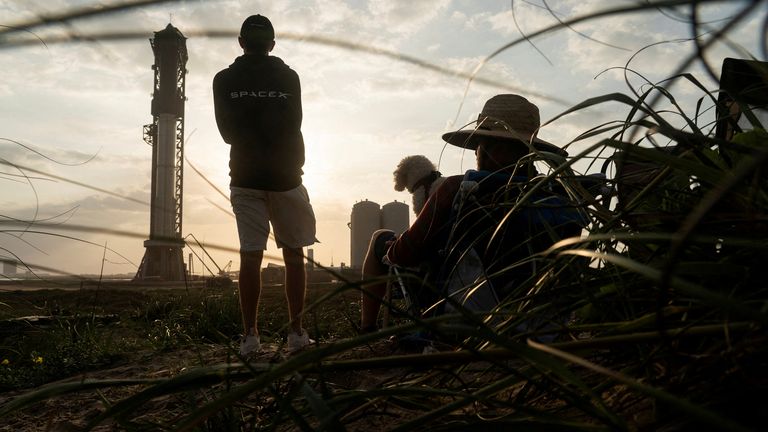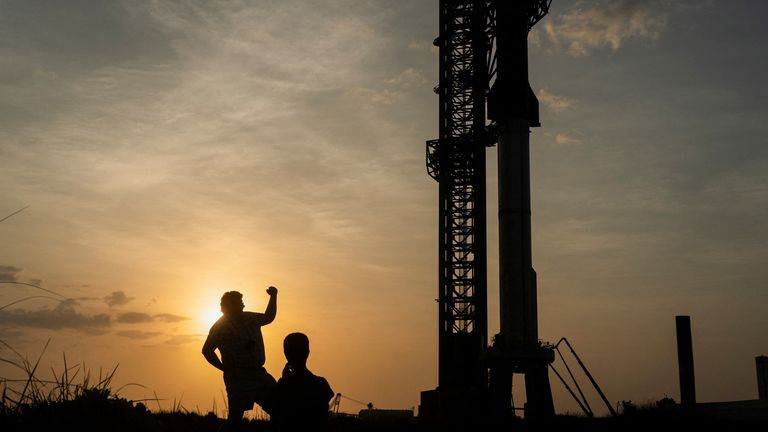Elon Musk’s SpaceX will make a second attempt at launching the world’s most powerful rocket system on Thursday.
Starship’s first-ever orbital test flight was due to take place on Monday but was scrapped after it suffered a glitch moments before take-off.
‘Learned a lot’ – failed Starship launch as it happened
Musk had set low expectations for the inaugural launch, saying it was a “fundamentally difficult thing” to do and “success is not what should be expected”.
But he will no doubt be hoping the rocket system, which is also the biggest ever made, will reach orbit this time.
The launch will take place from southern Texas between 8.28am local time (2.28pm in the UK) and 9.30am (3.30pm in the UK), on Thursday.
Starship is waiting on a launchpad at Boca Chica, atop a huge Super Heavy booster for a combined height of 120m.
The Super Heavy booster, which has 33 rocket engines, had a successful stationary launch test in February, generating enough power to reach orbit.
What will happen once the rocket takes off?
If take-off goes to plan, Starship itself will be deployed into orbit.
That’s the section of the rocket system that Musk hopes will carry crews of astronauts in future, with NASA having already signed up to use it to take humans back to the moon via its Artemis programme.
No people or even satellites will be on board on Thursday, and no landings will be attempted.
The Super Heavy – on this occasion a prototype called Booster 7 – will be discarded into the Gulf of Mexico, while Starship itself will complete a full orbit of the Earth and splash into the Pacific after re-entering the atmosphere.
Starship’s first orbital test comes after the US flight regulator issued SpaceX with a five-year licence, saying it met all safety and environmental requirements.
If Monday’s attempt is anything to go by, thousands of people will travel to the launch site to watch.


